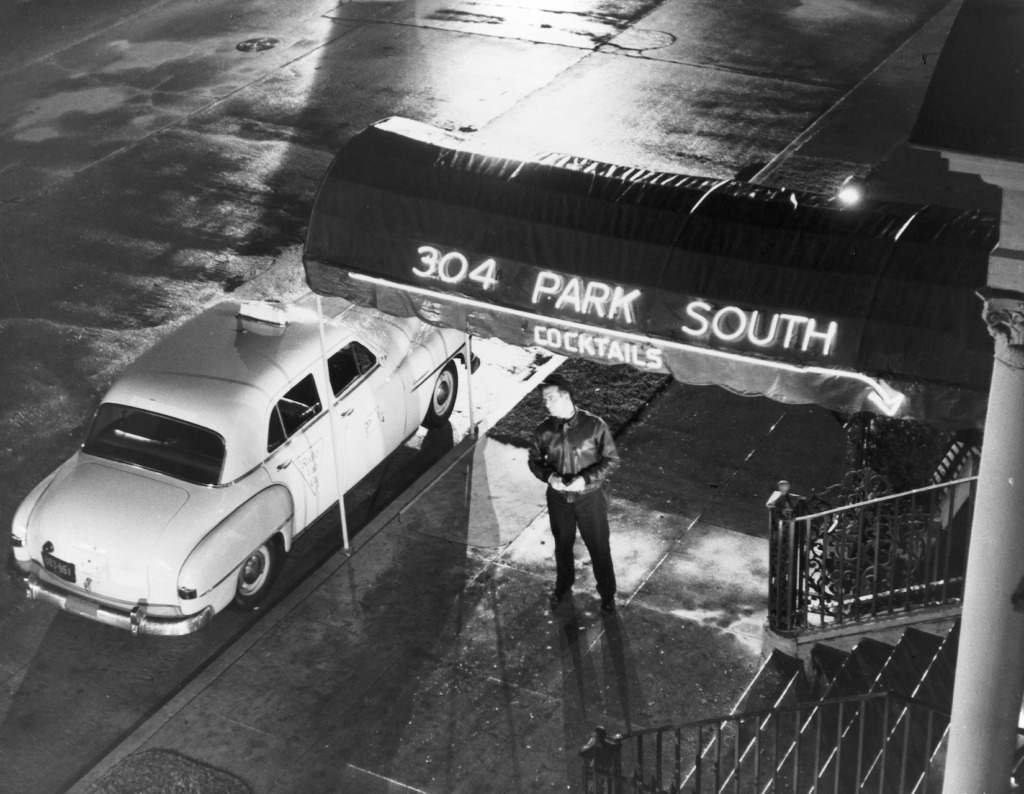A Notable Tough-Guy Entertainment From the 1950s, ‘99 River Street’ Gets the Blu-Ray Treatment
Say this for director Phil Karlsen: He brings terse conviction to plot contrivances that would stymie a lesser director. His devotion to composition and vantage point is clear throughout.

Director Phil Karlson (1908-82) is a curious figure in the annals of American cinema. A failed song-and-dance man who was strong-armed by his father into studying law, Karlsen took a job at Universal Studios “washing toilets and dishes and whatever the hell they gave me.” He went on to work as an assistant director on pictures of varying merit before being pegged by comedian Lou Costello to helm “A Wave, a Wac and a Marine” (1944). To the extent that this musical comedy is remembered at all it is chiefly as a trivia point: This was the cinematic debut of the king of the one-liners, Henny Youngman.
A journeyman director of often thankless properties, Karlson spent his last days scoring significant commercial hits, including Dean Martin’s spoof on James Bond, “The Silencers” (1966); a rat-infested horror movie with Ernest Borgnine, “Ben” (1972); and the vigilante justice opus “Walking Tall” (1973). These films put money in the bank for the peripatetic craftsman and they have their admirers. Still, Karlsen’s gift to history is likely a handful of gritty black-and-white films from the 1950s, tough-guy entertainments by a man who grew up in-and-amongst the underworld of his hometown, Chicago.
Kino Lorber has just released a special edition Blu-ray of “99 River Street” (1953), one of three films Karlson made with the Juilliard-trained John Payne. An actor of rugged mien who is likely best known for his role as the attorney working on behalf of Kris Kringle in the holiday perennial “Miracle on 34th Street” (1947), Payne was less than a perfect fit for the studio system. Still, Payne, like Karlson, ultimately did all right in the business.
Is it too much to imagine that these two cinematic also-rans benefited artistically from their similarities? “99 River Street” is an on-the-cheap, white-knuckle thriller, a tale of bad luck gone worse. Say this for Karlsen: He brings terse conviction to plot contrivances that would stymie a lesser director. His devotion to composition and vantage point is clear throughout. The opening scene sets the tone: a boxing match that is rattling in its choreography. Brute efficiency is the rule.

Ernie Driscoll (Payne, paunchy and belligerent) is a taxi driver who was once a contender: His career as a boxer was cut short by an injury to the eye. Driscoll can’t shake his fate and wife Pauline (Peggie Castle) is unhappy living life paycheck-to-paycheck. She’s sour enough to have been fooling around with a hoodlum-on-the-make, Victor Rawlins (Brad Dexter). In possession of some hot diamonds, Rawlins approaches a fence (a Yiddish theater veteran, Jay Adler) in the hopes of acquiring $50,000. Pauline’s presence at the proceedings quashes the deal — she’s a dame, don’t you know.
Meanwhile, Driscoll has been hoodwinked by a coffee shop acquaintance and burgeoning stage actress, Linda James (Evelyn Keyes). Linda lures him into an abandoned Broadway theater with a tale of a potential starring role, some handsy behavior on the producer’s part, and his inadvertent murder. Driscoll, already at the end of his rope, starts coming up with a plan to get rid of the body, whereupon the lights turn on and it’s apparent that this false scenario is Linda’s audition — which is lauded by all and sundry, except Driscoll. He’s livid.
Complicated business, this mash-up of divergent plotlines and disparate motivations, and their tangents never shake off the machinations of screenwriter Robert Smith. Still, Karlsen, having applied pressure from the get-go, never lets up and the result is a picture that is as tensile as a rubber band stretched to its limit. The actors, even the bit-playing toughs, bring it on, but special notice should be made of Keyes’s extravagance, particularly in the scene where Linda attempts to seduce Rawlins. Saucy, sharp, and sexy, she’s a vital component of a genre picture that earns its keep.

